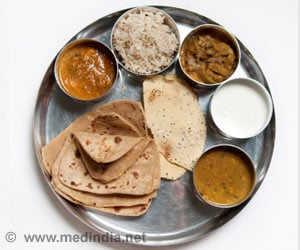Thousands of Indian women and girls are dying during pregnancy, in childbirth, and in the weeks after giving birth.
Thousands of Indian women and girls are dying during pregnancy, in childbirth, and in the weeks after giving birth. The government programs guaranteeing free obstetric health care simply does not work, charges Human Rights Watch in a report released Wednesday.
The 150-page report "No Tally of the Anguish: Accountability in Maternal Health Care in India" documents repeated failures both in providing health care to pregnant women in Uttar Pradesh state in northern India and in taking steps to identify and address gaps in care. Uttar Pradesh has one of the highest maternal mortality ratios in India, but government surveys show it is not alone in struggling with these problems, including a failure even to record how many women are dying."Unless India actually counts all the women who die because of childbirth, it won't be able to prevent those thousands of unnecessary deaths," said Aruna Kashyap. "Accountability might seem like an abstract concept, but for Indian women it's a matter of life and death."
The report cites numerous examples of cases in which breakdowns in the system ended tragically. Kavita K., for example, developed post-partum complications, but the local community health center was unable to treat her, according to her father, Suraj S., who said the family then tried to take her to government hospitals in three different towns.
"From Wednesday to Sunday - for five days - we took her from one hospital to another," he told Human Rights Watch. "No one wanted to admit her. In Lucknow, they admitted her and started treatment. They treated her for about an hour, and then she died."
India created a flagship program, the National Rural Health Mission, in 2005 to improve rural health, with a specific focus on maternal health. The program promises "concrete service guarantees," including free care before and during childbirth, in-patient hospital services, comprehensive emergency obstetric care, referral in case of complications, and postnatal care. But all of that seems to remain only on paper and is rarely translated into action, the HRW report said.
It also identified critical shortcomings in the tools used to monitor the health care system and identify recurring flaws in programs and practice. While accountability measures, such as monitoring how and why women die or are injured, or how many pregnant women with complications can use the government's emergency obstetric facilities, may seem dry or abstract, they are critical to intervening in time to make a difference and to saving the lives of women.
Advertisement
The failure to gather the necessary information at the district level about where, when, and why deaths and injuries are occurring and whether women with pregnancy complications in practice get access to emergency obstetric care; and
Advertisement
"India has recognized that thousands and thousands of its women are dying unnecessarily, and it could be leading the world in reversing that deadly pattern," said Kashyap. "But for all India's good intentions, the system still leaves many women at risk of death or injury."
The research for the report was conducted between November 2008 and August 2009, and included field research and interviews with victims, families, medical experts, officials and human rights activists in Uttar Pradesh and elsewhere in India. Researchers reviewed government surveys and reports by local and international nongovernmental organizations.
The investigations in Uttar Pradesh also show that while health authorities are upgrading public health facilities, they still have a long way to go. The majority of public health facilities have yet to provide basic and comprehensive emergency obstetric care. Many have a health worker trained in midwifery but who can do little to save the life of a pregnant woman unless supported by a functioning health system, including an adequate supply of drugs, emergency care, and referral systems for complications.
The reality is far different from what is guaranteed to women on paper. Niraja N., a health worker who routinely accompanies pregnant women to health facilities so they can give birth told Human Rights Watch:
"Nothing is free for anyone. What happens when we take a woman for delivery to the hospital is that she will have to pay for her cord to be cut ... for medicines, some more money for the cleaning. The staff nurse will also ask for money. They do not ask the family directly ... We have to take it from the family and give it to them [staff nurses] ... And those of us [ASHAs] who don't listen to the staff nurse or if we threaten to complain, they make a note of us. They remember our faces and then the next time we go they don't treat our [delivery] cases well. They will look at us and say ‘referral' even if it is a normal case."
In part, this happens because many women are unaware of their entitlements under health care programs and have no way to make sure that their complaints and concerns about the treatment meted out to them at health facilities or by health workers are heard and addressed.
Source-Medindia
GPL












